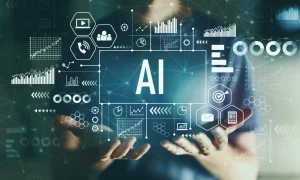The transportation industry is undergoing a seismic shift with the integration of Artificial Intelligence (AI) technologies, heralding a new era of mobility characterized by efficiency, safety, and sustainability. From autonomous vehicles and traffic management systems to predictive maintenance and logistics optimization, AI is reshaping every aspect of transportation infrastructure and operations. This article explores the transformative impact of AI in transportation, examining how it is shaping the future of mobility and revolutionizing the way people and goods move around the world.
Autonomous Vehicles: AI-powered autonomous vehicles represent a paradigm shift in transportation, promising to revolutionize personal mobility and reshape urban landscapes. Advanced AI algorithms enable autonomous vehicles to perceive their surroundings, interpret traffic signals, and navigate complex road conditions with human-like precision and reliability. By leveraging sensor fusion, computer vision, and machine learning techniques, autonomous vehicles can anticipate and respond to dynamic environments, avoiding collisions, and optimizing route planning to ensure efficient and safe transportation for passengers.
Traffic Management and Optimization: AI technologies play a crucial role in optimizing traffic flow, reducing congestion, and improving transportation efficiency in urban areas. AI-driven traffic management systems analyze real-time traffic data from sensors, cameras, and GPS devices to monitor traffic patterns, detect congestion hotspots, and optimize signal timings at intersections. Moreover, AI-powered predictive analytics models forecast traffic volume and congestion levels, enabling proactive traffic management strategies and dynamic rerouting to alleviate congestion and minimize travel times for commuters.
Predictive Maintenance and Fleet Management: AI-driven predictive maintenance systems revolutionize fleet management and maintenance operations by enabling proactive maintenance scheduling, reducing downtime, and extending the lifespan of transportation assets. Machine learning algorithms analyze sensor data from vehicles, aircraft, and infrastructure assets to identify early signs of equipment failure or degradation. By predicting maintenance needs in advance, transportation companies can optimize maintenance schedules, reduce repair costs, and ensure the reliability and safety of their fleets.
Smart Infrastructure and Connected Mobility: AI technologies facilitate the development of smart transportation infrastructure and connected mobility solutions that enhance the efficiency and safety of transportation networks. AI-powered traffic management platforms integrate with connected vehicles and infrastructure, enabling real-time communication and coordination between vehicles, traffic signals, and roadside sensors. Additionally, AI-driven predictive analytics models optimize public transit operations, improve route planning, and enhance passenger experience by providing real-time information about transit schedules, delays, and alternative transportation options.
Supply Chain Optimization and Logistics: AI technologies optimize supply chain operations and logistics by streamlining freight transportation, improving inventory management, and enhancing supply chain visibility and transparency. AI-driven predictive analytics models analyze historical shipping data, market trends, and external factors such as weather patterns and geopolitical events to forecast demand, optimize routing, and allocate resources efficiently. Moreover, AI-powered robotics and automation technologies automate warehouse operations, such as sorting, packing, and inventory tracking, increasing efficiency and reducing labor costs in logistics operations.
Conclusion: In conclusion, AI is shaping the future of mobility by revolutionizing transportation infrastructure, operations, and logistics. From autonomous vehicles and traffic management systems to predictive maintenance and smart infrastructure, AI-powered technologies enhance efficiency, safety, and sustainability in transportation networks worldwide. As AI continues to evolve, the future of transportation holds exciting possibilities for innovation, connectivity, and seamless mobility that will transform the way people and goods move around the world.














1 thought on “AI in Transportation: Shaping the Future of Mobility”
Nice